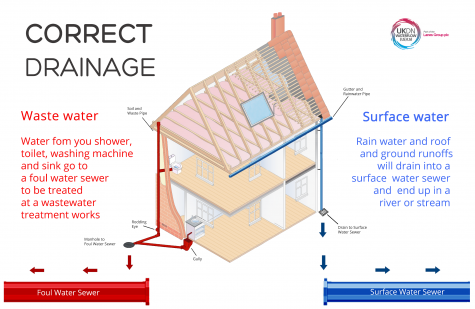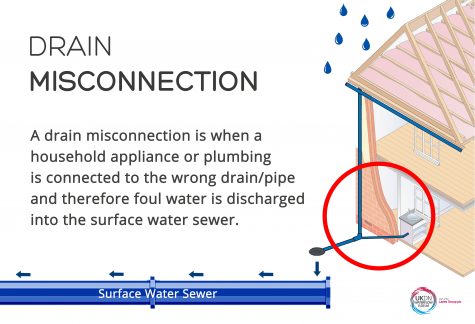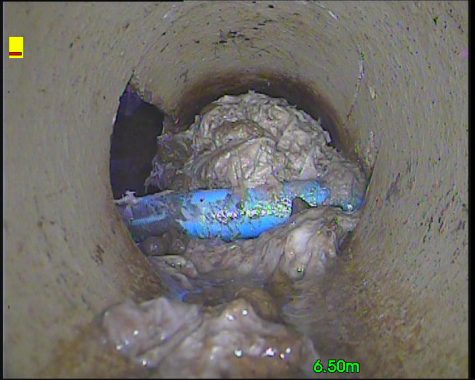Misconnected pipes and drains are a major threat to UK rivers and seas – plumbing misconnections can contribute towards pollution so it is important to be aware of what to look out for. Throughout the UK there are thousands of homes with misconnected drains, which create large problem for maintaining clean rivers and healthy wildlife. So what is a drain misconnection and why do they affect our rivers?
What is a drain or pipe misconnection?
Usually, there are two sewers within your house – a wastewater sewer, where drainage from your bathroom appliances, toilets and washing machines will go to be treated at a wastewater treatment plant. Surface water, such as rainwater and roof and ground runoffs will head to a river or stream.

If the two pipes become misconnected, dirty water from your toilet or shower could get released into a river before being treated. River pollution then occurs when the wastewater from your appliances (washing machines, sinks and dishwashers are included) drains into the wrong sewers, leading it into streams and rivers. As well as this, the clean water pipes can become misconnected – this can overload the wastewater sewer and lead to flooding. This is why it’s so important to check your drain pipes are not misconnected, avoiding any nasty sewage problems or hefty fines form the council later on (you could be fined up to £50,000, however, this is rare).

How does this damage the environment?
Misconnected drains cause big risks for the environment as well as public health. Marine life can become contaminated from harmful bacteria and chemicals such as faeces and cosmetic items like shampoo. Other products such as bleach and body wash are particularly dangerous to the environment and wildlife as they contain extremely harmful chemicals. Furthermore, those who consume fish are at risk from all the chemicals which have polluted the seas.
How can I look after rivers?
Drain misconnections are a big problem for rivers and seas throughout the country, but misconnections aren’t the only threat to our rivers – flushing items like wet wipes and cotton buds can also be dangerous, even if they state they are ‘flushable’ on the packet. Flushed items can end up in our rivers through misconnections and being small enough to by-pass filtering systems. Research by UKDN Waterflow has shown that most commonly flushed items contain some form of plastic, which can take 500 years or more to biodegrade in a river or marine environment. Therefore, it’s important to only ever flush the 3 P’s – pee, poo and paper. Any other household items or litter should be discarded in the bin.

Objects not meant for flushing can clog drains and rivers, which can result in flooding. If you want to find out more about drain misconnections and how to identify them, see the recent whitepaper by drainage and wastewater management company – UKDN.







